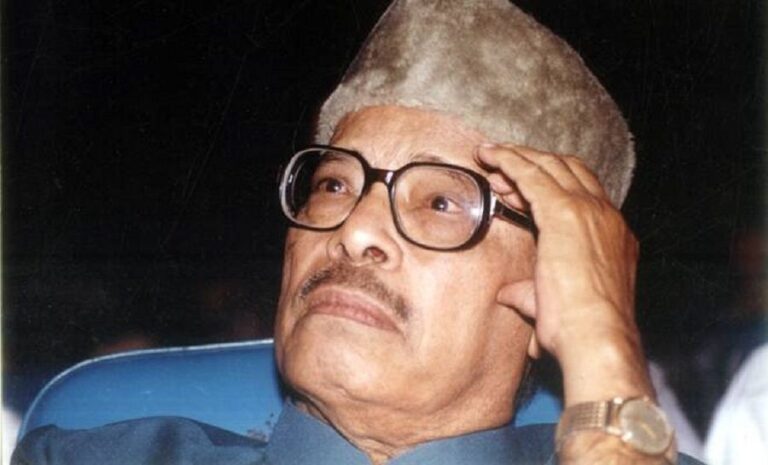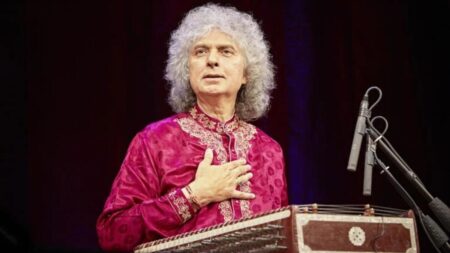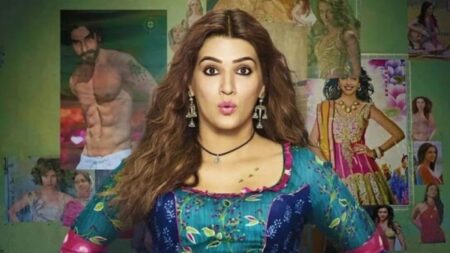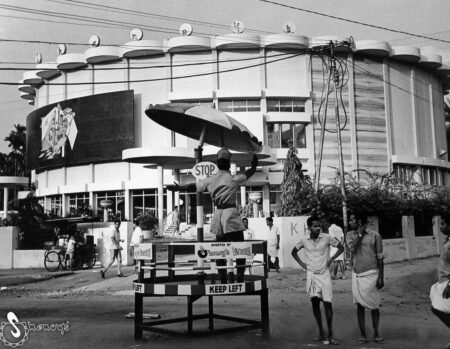Manna Dey, through his melodious immortal songs, has left his indelible mark on music. A tribute to the versatile singer on his 102 nd birth anniversary
In an era when legends like Mohammed Rafi, Kishor Kumar, Mukesh, and Talat Mahmood were ruling Bollywood by becoming the voices of various heroes, Prabodhan Chandra Dey, better known as Manna dey, carved a niche for himself, through his classical and other songs.
Manna Dey’s uncle and guru Krishna Chandra Dey, or KC Dey as he is known, used to tell him to practise each note with a full throat. Manna Dey says, “My uncle used to sing in orchestras, and even when there were no mikes then, his voice would reach the last person in the audience.”
K C Dey had lost his eye sight at the age of 14. “I used to be surprised as to, how a blind person, despite not seeing the audience, could manage such a loud voice throw. When I asked him about this, he used to make me sing each note with a full throat. He would say that, if you practise notes in the full-throated voice, you will not find it difficult, when you have to sing softly.”
Powerful voice
This voice practice would prove very useful for Manna Dey when he sang different genres of music. In songs like Ai Mere Pyare Watan (Kabuli Wala), or Pucho Na Kaise Main Ne Rain Bitai (Meri Surat Teri Aankhen) his voice is extremely soft. While in songs like Malik Ne Kahe Hath Do Do Diye (Miss India), or Nadiya Chale Chale re Dhara (Safar), his voice would be strong. In songs like Pyar Hua Ikrar Hua (Shri 420), he has employed high range, but in a soft voice. Whereas for songs like Cham Cham Baje Re Payaliya (Jaane Anjaane), his high notes are strong.
Manna Dey encountered many difficult situations in his long career. He says, “In my beginning days, I would get songs, which were not the regular run of the mill. Singers like Rafi, Kishor, could sing any type of song. I used to feel bad that, whatever songs they did not sing would come to me. But I would try to give my very best in each song, that came to me. Often music directors would come to me with very difficult songs, and I had to prove that, I could handle them without compromising on their emotive appeal”.
Duet with Bhimsen Joshi
For the movie Basant Bahar, Dey had to sing with the classical legend Bharat Ratna Pandit Bhimsen Joshi. The story of this song, Ketaki Gulab Juhi, has been mentioned in his own words. “when the music director told me that, I have to sing for a Jugalbandi with Panditji, I was extremely afraid. I went home and told my wife that we should abscond for a few days, so that, someone else will compete with Panditji. My wife replied that the situation is tailor-made for me, as I am singing for the hero, who has to win. I started practising for the song, and after the recording, Panditji told me that, if I keep on practising like this, I would become a good classical singer as well”.
Another time, for the song Ye Raat Bhigi Bhigi, the producer wanted some other singer, but Manna Dey, with the support of the music directors Shankar Jaikishan, convinced him to have the song in his voice.
Raj Kapur was making a film Jagte raho, in Hindi and Bengali. Dey says, “in the movie, Mukesh sang the song Zindagi Khwab hai, and I was asked to sing the Bengali version of it. Since Mukesh was my dear friend, I didn’t mind his singing, but what hurts me is that they were using two voices for the same character. I told the music director to make Mukesh sing the Bengali version as well, as I did not want to be labelled as a singer who only could sing in Bengali.
However, Raj Kapur insisted and I was ready to sing. The song was to be picturized on Uttam Kumar, a great Bengali actor. Due to this, the distributors wanted the voice of Hemant Kumar for him, as Hemant Kumar was the reigning superstar of Bengali music at the time. But Uttam Da approved my voice, and that launched my career in Bengali music.”
Dey, despite being very talented and versatile, was labelled as someone who could sing only classical songs. Bhajan singer Anup Jalota says, “Once my father (Purshottam Das Jalota) and Dey were participating in a programme. After my father finished his performance, Dey told him that, I wish that, I also could sing Khayal like you, but people have made my image as a classical playback singer.”
Thoughts on contemporaries
Manna Dey was a humble person, who accepted the greatness of his contemporary singers, despite them being his competitors. According to him, Mohammed Rafi was an artist with a golden voice, who could sing any kind of song. Kishor Kumar was an abundantly talented and self-taught artist, who was all the time brimming with new ideas. “When we sang Ek Chatur Nar for the film Padosan, we rehearsed for 12 hours nonstop. When the actual recording started, I was singing the line Nachna Jane Angan Teda, with a lot of variations. Suddenly Kishor Kumar sang, Tede Tede Sidhe Hoja Re, which was not at all rehearsed,” he was quoted saying.
Dey worked with almost all the music directors of his times. He says, “Madan Mohan gave me some beautiful songs like Kaun Aaya Mere Man Ke Dware. He was the master of Ghazals, and would beautifully combine traditional and modern music. Naushad was a hard taskmaster, who would constantly look for excellence.
He would demand that each note should be sung with the aesthetics which he expected. We would do a minimum of six rehearsals for each of his songs, and even afterwards he will never pack up until he is not satisfied with the recording. S D Burman would often experiment with my voice, by giving me songs for different kinds of characters. After teaching me the song, he would give me complete freedom to sing.”
Dey enjoyed working with Raj Kapur, who will playfully get the work done, while when he sang for Mehmood, he had to struggle to make the classical songs more spicey, which would help the actor. His immense contribution will be remembered by music lovers forever.




